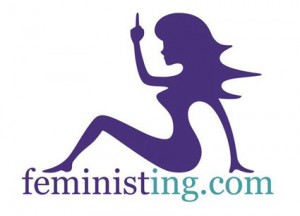In an ideal world, none of us would have to worry about harassment or ask ourselves the question of what we should do when faced with harassing behaviours. Unfortunately, however, the world we live in is less than ideal, and so this is a worry we have to face and a question we have to ask. Today, I wanted to write a bit about the resources that exist on UBC campus to help you deal with discrimination and harassment, as well as UBC’s official definition of discrimination and harassment itself. Even if none of you reading this ever find yourselves in a position where you need to use these resources, I believe it’s always good to be informed!
There are two items which are useful to know. The first is Policy #3, UBC’s official policy on discrimination and harassment. You can find a PDF copy of the full policy here, but to pick out some key points, the policy defines thirteen so-called “protected grounds” – categories which are protected against discrimination, taken from the British Columbia Human Rights Act. These protected grounds are “age, race, colour, ancestry, place of origin, political belief, religion, marital status, family status, physical or mental, disability, sex, sexual orientation, and unrelated criminal convictions”. Harassment, meanwhile, is defined as “physical, visual or verbal behaviour directed against a person for which there is no bona fide and reasonable justification”.
Policy #3 also lays out the correct procedures for lodging complaints of harassment or discrimination. The most important name to know for understanding this process is that of the UBC Equity Office. The Equity Office is there “to prevent discrimination and harassment on campus” and “to provide procedures for handling complaints”: basically, it’s the place go if you have concerns or complaints about harassment or discrimination which you have experienced or witnessed. Policy #3 stipulates that complaints may be lodged by any member(s) of the University community against any other member(s) of the University community or visitors.
The first step in lodging such a complaint is to go to the Equity Office and meet with an Equity Advisor, who is responsible for “[assisting] the complainant in clarifying the allegations, and their related consequences, and in considering the applicability of various options, such as an apology from the respondent or reassignment of duties”. When you meet with an Advisor, you’ll receive more information and guidance, and the Advisor will help you decide on one of three different options for further action: informal resolution, mediation, or formal investigation and recommendation, which are discussed in more detail on pages 4-7 of the Policy #3 PDF (but, really, they’re basically just what they sound like).
Now, the second of those useful items to know that I mentioned way back three paragraphs ago is UBC’s Respectful Environment Statement. This one is a pretty quick and easy read, and I have nothing particularly to say about it, but if you want to be informed about UBC’s misssion as far as on-campus equity goes, I highly suggest you give it a glance.
And there you have it, I guess. Mainly, the reason I’m writing this is because, as I said, I believe it’s always good to be informed, since knowledge is power and all that good stuff. So with any luck this was useful and informative to at least some of you! Remember also that if you have anything you want to chat about to do with equity issues on campus and so forth, you can definitely drop us Equity Ambassadors a line as well.
Good luck to everyone heading into finals next week!
 Remember the deaths of three people in a low cost rooming house in Van East?
Remember the deaths of three people in a low cost rooming house in Van East?












